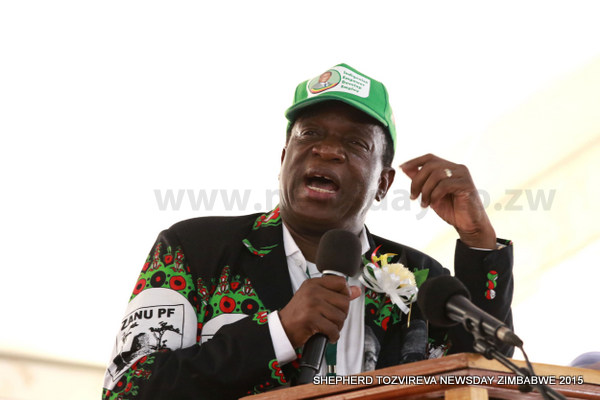
PRESIDENT Emmerson Mnangangwa has called on African governments to invest in agriculture amid revelations that the continent is spending about $50 billion annually on food imports.
By Nokuthaba Dlamini
Mnangagwa said this while addressing Sadc delegates at the official opening of the Southern African Confederation of Agricultural Unions (Sacau) annual meeting in Victoria Falls yesterday. He said Africa should harness its arable land to stimulate economic growth, development and improve food security.
Mnangagwa said farmers were exporting primary agricultural products and getting little in return due to non-existent facilities for value addition.
“It is regrettable that African countries spend between $30 billion and $50 annually on imports of agricultural products, instead of developing the productive capacities necessary for trade. This reality gives greater impetus for us all, governments, unions, farmers and private sector alike, to invest in agriculture to produce for our own needs within the continent as well as for export outside Africa,” he said.
“I urge you all not to only have a better appreciation of the regional, continental and global trade agreements that have implications on intra-regional trade promotion, but to also cascade the knowledge and perspectives from this conference to other quotas of the farming communities such as small-scale and communal farmers.
“It is through concerted sharing of knowledge on enhanced production and market participation that our agricultural sector in the region will grow and economic benefits will accrue to our people for better quality of life of all.”
Mnangagwa also urged farmers to join hands with academic and agricultural institutions to improve their farming skills.
- Chamisa under fire over US$120K donation
- Mavhunga puts DeMbare into Chibuku quarterfinals
- Pension funds bet on Cabora Bassa oilfields
- Councils defy govt fire tender directive
Keep Reading
“As farming organisations and unions, you also play a pivotal role with regards research and development on appropriate technology, new farming methods, post-harvest management methods, seed variety development, crop scheduling, proper land use systems among others. In executing this key function, I exhort you to increase partnerships and linkages with agricultural institutions, faculties and departments within institutions of higher learning for more relevant and responsive innovation and research in the agriculture sector.
“We must encourage research that addresses the day-to-day challenges that face our people while equally answering the peculiar challenges that we face within our geographical zones and regions. This will in turn improve productivity and farming methods among the least financed farmers within our countries.”
Mnangagwa said the region’s main priority was to provide food security.
“At regional level, Sadc has prioritised food availability and access as well as the review and harmonisation of its policies on agriculture and natural resources, hence the proposed Sadc Regional Agricultural Policy (RAP), intends to develop a legally binding instrument to stimulate agricultural development and food security in the region, in this regard, your role as farmers’ unions is integral because you are a vital link between farmers and decision-makers, as well as between producers at the markets. I am, thus, confident that your advocacy and insights for better agricultural policies and the promotion of productivity will be useful and handy as we seek sustainable growth of this sector both in our region and the continent at large.”
The conference, which ends today was co-hosted by Sacau’s two members in Zimbabwe, the Zimbabwe Farmers’ Union and Commercial Farmers’ Union and was held under the theme, Trade as a Driver for Agricultural Transformation in Southern Africa.











